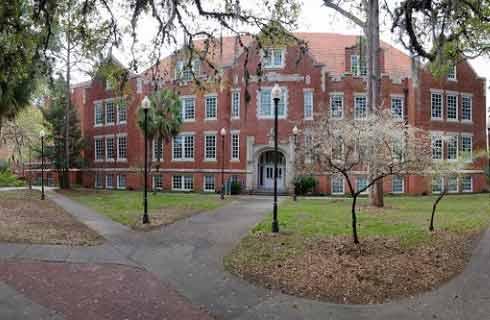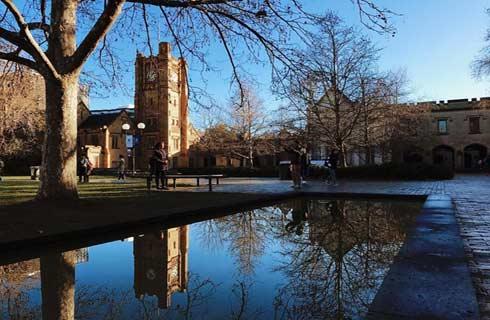BSc (Hons) Ecology and Conservation


学历文凭
Bachelor Degree with Honours

专业院系
Biological Sciences

开学时间

课程时长

课程学费

国际学生入学条件
Required Subjects A level grade BB in two sciences from the following, Biology, Chemistry, Computing, Environmental Science, Geography, Geology, Human Biology, Mathematics, Physics or Psychology.
GCSE Mathematics grade B or 5, English Language grade C or 4
International Baccalaureate 32 points overall with 16 points from the best 3 Higher Level subjects including two science subjects at HL grade 6
IELTS - 6.5 overall with at least 5.5 in each component.
ToEFL IBT - 87 overall, minimum of 17 in listening, 18 in reading, 17 in speaking and 20 in writing
IDP—雅思考试联合主办方

雅思考试总分
6.5
- 雅思总分:6.5
- 托福网考总分:87
- 托福笔试总分:160
- 其他语言考试:Pearson PTE Academic - 58 overall, minimum of 42 in each of the four skills
CRICOS代码: C180
申请截止日期: 请与IDP联系 以获取详细信息。
课程简介
相关申请
 预科
预科 奖学金
奖学金 实习机会
实习机会 在校学习
在校学习 跨境学习
跨境学习 校园授课-线上开始
校园授课-线上开始 在线/远程学习
在线/远程学习
本校相关课程

International Foundation Year in Business and Management Studies [Three Terms]
学历文凭
Foundation for Undergraduate
开学日期
课程费用总额


International Foundation Year in Engineering and Computing [Three Terms]
学历文凭
Foundation for Undergraduate
开学日期
课程费用总额


International Foundation Year in Law [Three Terms]
学历文凭
Foundation for Undergraduate
开学日期
课程费用总额


International Foundation Year in Life Sciences [Three Terms]
学历文凭
Foundation for Undergraduate
开学日期
课程费用总额


International Foundation Year in Mathematics and Statistics [Three Terms]
学历文凭
Foundation for Undergraduate
开学日期
课程费用总额


Pre Masters Programme in Business, Law and Social Sciences [Three Terms]
学历文凭
Foundation for Postgraduate
开学日期
课程费用总额

其他相关课程

生物医学学士
 皇家墨尔本理工大学
皇家墨尔本理工大学学历文凭
Bachelor Degree
开学日期
课程费用总额


哲学硕士-生物医学和生物化学
 澳大利亚国立大学
澳大利亚国立大学学历文凭
Masters Degree (Research)
开学日期
课程费用总额


生物医学学士
 詹姆斯·库克大学
詹姆斯·库克大学泰晤士高等教育世界大学排名:361
学历文凭
Bachelor Degree
开学日期
课程费用总额


理学学士(海洋生物学)
 弗林德斯大学
弗林德斯大学泰晤士高等教育世界大学排名:307
学历文凭
Bachelor Degree
开学日期
课程费用总额


理学学士-海洋生物学(荣誉学位)
 弗林德斯大学
弗林德斯大学泰晤士高等教育世界大学排名:307
学历文凭
Bachelor Degree with Honours
开学日期
课程费用总额


城市与环境规划学士/海洋生物学理学学士
 格里菲斯大学
格里菲斯大学泰晤士高等教育世界大学排名:258
学历文凭
Dual Degree
开学日期
02 March 2026
课程费用总额
AUD 167,500










